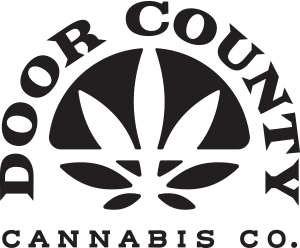Is Delta-8 THC Legal in Wisconsin?
Key Takeaways:
- Delta-8 THC, a hemp-derived cannabinoid, remains federally legal under the 2018 Farm Bill but faces varying state and local regulations.
- Wisconsin has no overarching state regulations specific to Delta-8 THC, but local ordinances like those in Wood County impose restrictions.
- Consumers and businesses must navigate a complex legal landscape to ensure compliance.
What is Delta-8 THC?
Delta-8 THC is a naturally occurring cannabinoid derived from hemp. While similar to Delta-9 THC, Delta-8 offers distinct properties and typically produces milder effects. This cannabinoid has become a popular alternative for consumers seeking hemp-derived products such as gummies, tinctures, and vape cartridges.
Delta-8 THC’s legal status stems from the 2018 Farm Bill, which legalized hemp and its derivatives as long as the delta-9 THC concentration does not exceed 0.3% by dry weight. Despite federal legality, state and local regulations vary significantly.
Legal Complexity and Local Variations in Delta-8 THC Laws
While Delta-8 THC is federally legal, state and municipal laws create a patchwork of regulations that complicate production, sales, and consumer access.
Legal Status of Delta-8 THC in Wisconsin
Delta-8 THC is classified as legal in Wisconsin, thanks to the state’s adoption of the federal definition of hemp under the 2018 Farm Bill. Wisconsin law defines hemp as:
“The plant Cannabis sativa L. and any part of that plant, including the seeds thereof and all derivatives, extracts, cannabinoids, isomers, acids, salts, and salts of isomers, whether growing or not, with a delta-9-tetrahydrocannabinol concentration of not more than 0.3 percent on a dry weight basis.”
This broad definition includes Delta-8 THC and exempts it from the state’s Controlled Substances Act, making it lawful to produce, sell, and consume hemp-derived Delta-8 THC products.
Key Points:
- Delta-8 THC is derived from hemp and legal in Wisconsin if it adheres to federal THC limits.
- Products must be tested to ensure compliance with THC concentration limits.
- Interstate sales of Delta-8-infused food products may trigger FDA enforcement, while intrastate sales are permitted.
For further details, review Wisconsin’s state legislation on hemp.
Wood County, Wisconsin
In 2022, Wood County, Wisconsin, became the first county in the state to pass an ordinance regulating the sale and possession of psychoactive hemp-derived cannabinoids, including Delta-8 THC. This local legislation was a landmark move spearheaded by the Wood County Health Coalition (WCHC) in response to concerns about youth accessibility to these products.
Key Provisions of the Ordinance:
- Age Restriction: Sale and possession of Delta-8 THC products are restricted to individuals aged 21 and over.
- Proximity Limitations: Retailers cannot sell Delta-8 THC products within 750 feet of certain facilities, including schools, childcare centers, parks, hospitals, and youth-serving organizations (e.g., Boys & Girls Club, YMCA). Businesses already selling these products before July 31, 2022, are exempt from this restriction.
- Sales Verification: Retailers must verify the purchaser’s age using a valid photo ID.
Access the full ordinance here.
Dane County, Wisconsin
While Dane County has yet to introduce specific Delta-8 THC regulations, community discussions emphasize the need for clearer rules. Proposed measures include stricter testing and labeling standards to enhance consumer safety and product transparency.
National and Regional Variations
While federally legal, Delta-8 THC regulations at the state level vary significantly, creating a patchwork of rules that can complicate production, sales, and consumer access.
Prohibitive States:
States such as Colorado, New York, and Alaska have banned Delta-8 THC outright, despite their permissive marijuana policies. These bans often stem from concerns about product safety or synthetic conversion processes used to create Delta-8 THC.
Regulated Markets:
States like Oregon and Michigan allow Delta-8 THC but enforce strict testing and labeling standards akin to those required for marijuana products. These regulations aim to ensure consumer safety and product transparency.
Unregulated Markets:
In states where Delta-8 THC remains legal by default, the absence of regulatory frameworks raises concerns about product quality, potency, and contamination. Without mandatory testing, consumers in these markets face potential risks.
For a detailed breakdown of Delta-8 THC’s state-by-state legality, explore CBD Oracle’s interactive map.
Federal Considerations and Potential Changes
The 2018 Farm Bill’s omission of Delta-8 THC has created a legal gray area. However, federal agencies like the FDA and DEA are closely monitoring the production and sale of hemp-derived cannabinoids. Proposed amendments to the Farm Bill and ongoing debates over synthetic cannabinoids could reshape Delta-8 THC’s regulatory framework.
Delta-8 THC in Wisconsin’s Market
In Wisconsin, Delta-8 THC products such as gummies and tinctures are widely available, provided they meet federal THC content limits. Companies like Door County Cannabis Co. prioritize quality and compliance, offering third-party-tested products that adhere to state and federal standards.
Important Considerations for Consumers
- Age Restrictions: While state law does not set a minimum age, most retailers only sell Delta-8 products to individuals aged 21 and over.
- Consumption Restrictions: Smoking Delta-8 THC is prohibited in areas where cigarette smoking is banned under the Wisconsin Clean Indoor Air Act.
- Driving Under the Influence: Driving while impaired by Delta-8 THC is illegal and can lead to penalties under Wisconsin’s OWI laws.
- Interstate Travel: Delta-8 THC can be transported to Wisconsin from states where it is legal, but travelers should carry proof of compliance, such as a Certificate of Analysis (COA).
Minimum Age Requirements
Wisconsin mandates a minimum age of 21 for purchasing and consuming Delta-8 THC products. Retailers must verify the age of customers by checking government-issued identification.
Frequently Asked Questions
1. Is Delta-8 THC legal in Wisconsin?
Yes, Delta-8 THC is legal in Wisconsin if it is derived from hemp and contains less than 0.3% delta-9 THC by dry weight.
2. Can you drive after using Delta-8 THC?
Driving under the influence of substances that impair your ability is illegal. Consumers should exercise caution and follow local laws.
3. How do Delta-8 and Delta-9 THC differ?
Delta-8 THC offers a milder experience than Delta-9 THC, making it a popular choice for those seeking a less intense alternative.


